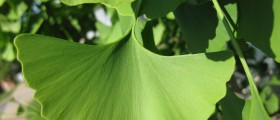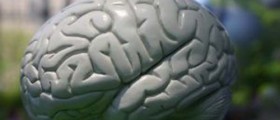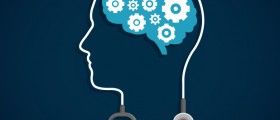
Ginkgo biloba is a very unique tree species as it has noclose living relatives. It is also sometimes referred to as the MaidenhairTree. It has been known to mankind ever since the earliest days of civilizationand it is cultivated every around the world because it is commonly used forvarious different types of medicinal and culinary purposes.
Ginkgo Biloba Benefits
Gingko giloba can be used for numerous different types ofmedicinal purposes. This is mainly due to the fact that the extract of itsleaves contains flavonoid glycosides and certain types of terpenoids such asbilobalides and ginkgolides. These substances have been used for various sortsof pharmaceutical purposes. Ginkgo biloba may also be purchased in the form ofa supplement. The daily dosage is usually between 40 and 200 milligrams,depending on the product and the individual needs of the consumer. According tonumerous scientific studies, ginkgo biloba may be of great help when it comesto the treatment of dementia. Contrary to the popular belief it cannot be ofany help in the prevention of the onset of Alzheimer’s disease. Certainmedicinal sources claim that it has very potent nootropic properties so that itcan be used to enhance one’s concentration and memory. They say that it is alsoan excellent agent for the prevention and treatment of vertigo. Different studiesgave mixed results when the efficacy of gingko biloba is concerned. Certainstudies have shown that gingko biloba does not provide the humans with anymeasurable benefit in memory or any other cognitive function related to it.According to other, simultaneous studies, it has the potential for theenhancement of certain memory and neuropsychological processes in adults whoare 60 years old, or even older. Some studies have also shown that gingkobiloba may be of help to a certain extent when it comes to improving theattention in individuals who are otherwise normal and healthy. This is probablydue to its very inhibitory effect that it has on the reuptake ofnorepinephrine. There were certain preclinical results in mice which have shownthat gingko may be of some help in the treatment of the dreaded Alzheimer’sdisease. The studies have shown that a dosage of 160 milligrams of gingkobiloba extract taken on a regular daily basis may be equally effective as adaily dose of 5 milligrams of the medication known as donepezil. For those whodo not know, this medication is classified as a cholinesterase inhibitor. Arandomized controlled clinical trial published in 2008 have shown that dailydoses of 120 milligrams of gingko biloba taken on a regular daily basis cannotbe of any help when it comes to the effective treatment of dementia. Thescientists have then decided to push on, so further studies have shown thathigher doses of 240 milligrams of gingko biloba extract taken on a regulardaily basis may be effective in the treatment of mild to moderate cases ofdementia.
Side Effects of Gingko Biloba
As is the cases with most other types of medications, herbalremedies and other substances which are used for different sorts of medicinalpurposes, gingko biloba may sometimes be associated with certain kinds ofunwanted side effects. Such side effectscommonly occur in persons who suffer from different types of blood circulationdisorders and those who take different types of anticoagulants such as warfarinor Aspirin. Certain studies have shown that the gingko biloba extract does nothave any effect on the anticoagulant properties of such medications. Those whotake certain types of selective serotonin reuptake inhibitors, monoamineoxidase inhibitors and other similar types of antidepressants should not takegingko biloba. Pregnant women should also steer clear of gingko biloba. If aperson starts experiencing any side effects during the consumption of gingkobiloba extracts, he or she needs to stop taking it at once. The most commonside effects which may or may not occur, depending on the person, includerestlessness, heart palpitations, dizziness, headaches, diarrhea, vomiting,nausea, overall gastrointestinal discomfort and a possible increased risk ofbleeding.
Can ginkgo biloba help with memory?
As already explained, the extract of gingko biloba which isderived from the trees of the Gingko Biloba is often credited as an excellentenhancer of memory, concentration and several other important cognitivefunctions. On the other hand, it is a widely accepted fact that gingko bilobaextract cannot be of any significant help when it comes to the prevention ofmemory loss which is often related to mild cognitive impairment and similarmedical condition. Older adults who suffer from dementia are actually the oneswho can benefit from the extract of the gingko biloba leaves. There werecertain studies which were taken in order to show that such claims could not befurther from the truth.

















Your thoughts on this
Loading...